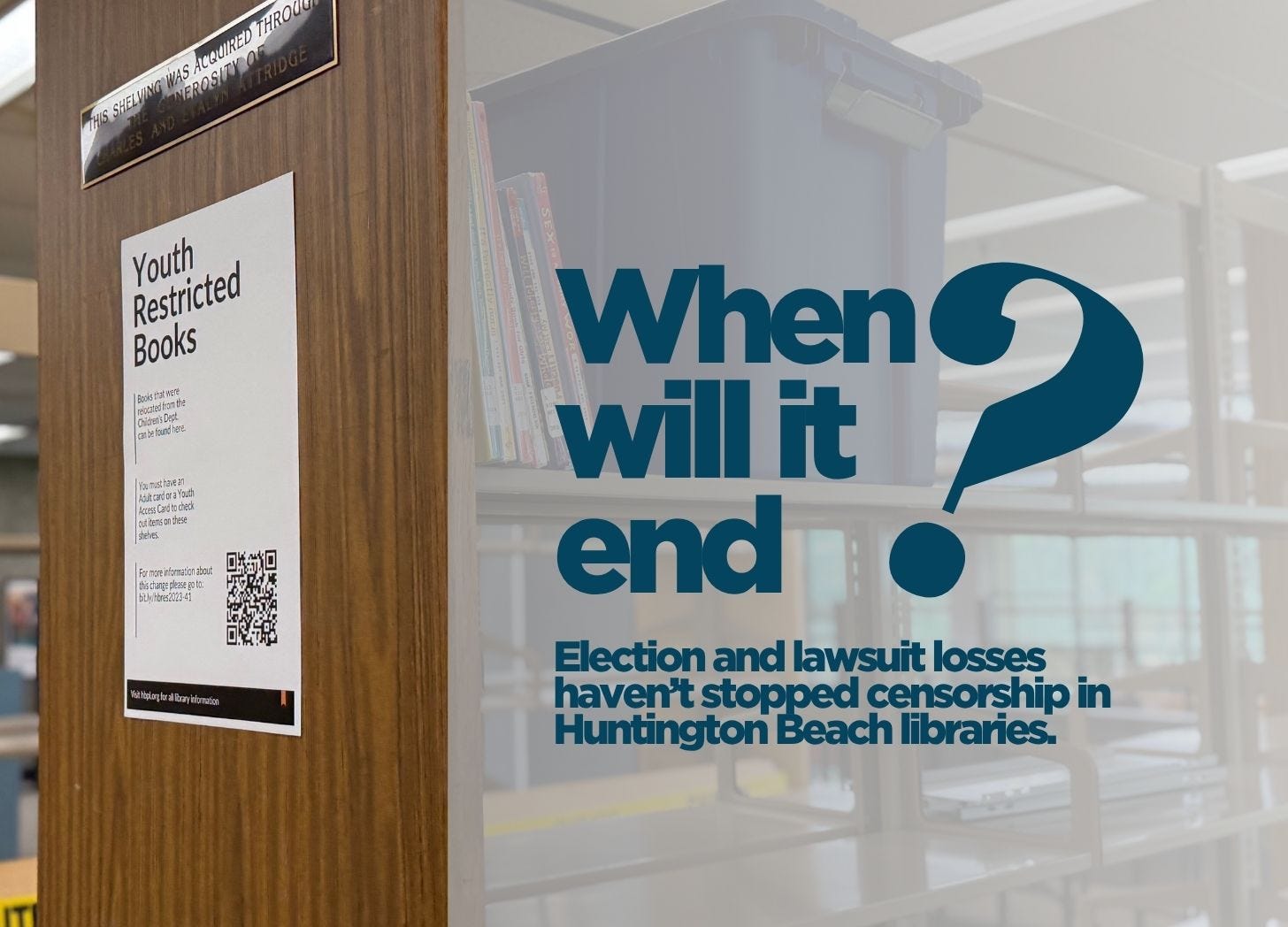When will it end?
Election and lawsuit losses haven’t stopped censorship in Huntington Beach libraries.
What will it take for the Huntington Beach City Council to get the message?
After years of turmoil over the city’s decision to relocate select children’s books to a “restricted” section of the library, Huntington Beach citizens took to the polls and resoundingly rejected the censorship attempt on their public library. The special election, which took place in June, had two library measures on the ballot. Both measures passed with a significant majority, repealing the controversial library review board and requiring a public vote should the City Council attempt to privatize the library.
You would think a decisive loss at the polls would serve as a wake up call to the City Council. That they might realize their extreme focus on library content was not only misguided but not welcomed by their constituents.
It didn’t.
Then, in September, the Orange County Superior Court ruled against the City of Huntington Beach, finding the review board policy to be in violation of the California Freedom to Read Act and California Constitution. The City was ordered to return any relocated books to their proper place in the library and remove the restricted section by October.
Yet, here we are in November and the restricted section of the library remains in place. Instead of complying with the ruling, not to mention the public vote to repeal, the Council decided to double-down and voted to appeal the court’s decision during a closed session.
We spoke with Erin Spivey, a professional librarian and one of the Plaintiffs who brought on the lawsuit against the city, to get her thoughts on the matter. Our conversion took place prior to the Huntington Beach City Council voting to appeal. “I fully expect them to appeal the judge’s decision regardless of whether they have a leg to stand on or not.”
Spivey worked for years as a librarian in Huntington Beach where she witnessed the local rise in accusations against the library. “We, as professionals, are dedicated to making sure that our own biases do not show up in how we select books. So having something as nebulous as ‘sexual content’ hanging over how we are curating our collection is just antithetical to the work we do in the library.”
Spivey didn’t let the vitriol deter her and instead she decided to take a stand. When asked why she felt compelled to go as far as taking part in the lawsuit she said, “I’m guided by my faith in a lot of ways in that I’m drawn to serving other people as a way of serving God. So whenever there’s a challenging situation, my first thought is, ‘well, if not me, then who? Who would do this?’ I’m not really one to shy away from a fight.”
While the appeal is pending, Spivey remains confident. “I think the library always wins and we have proof of that all over the country. Whenever you put a library issue on the ballot, the library usually wins. People love the library and people love the freedom to read. We will prevail. It’s just a matter of time, so we have to keep going.”


